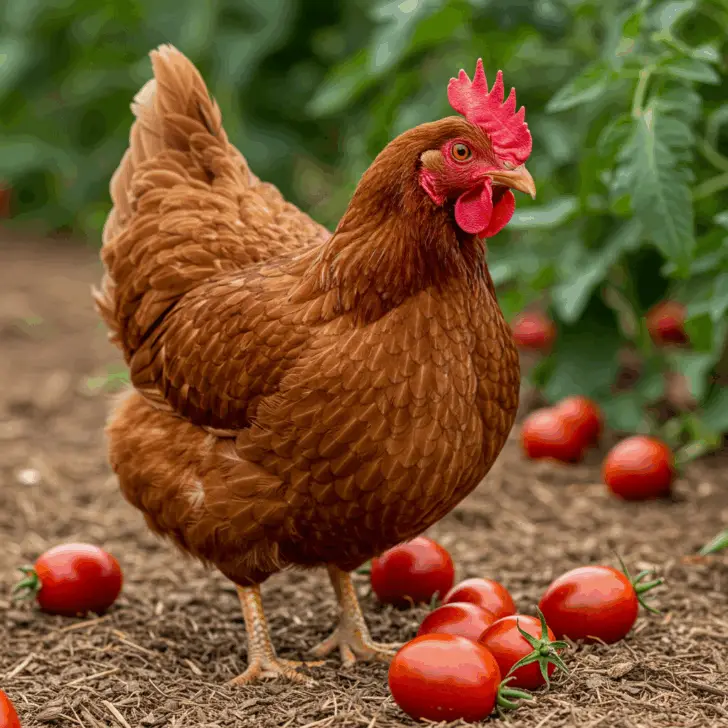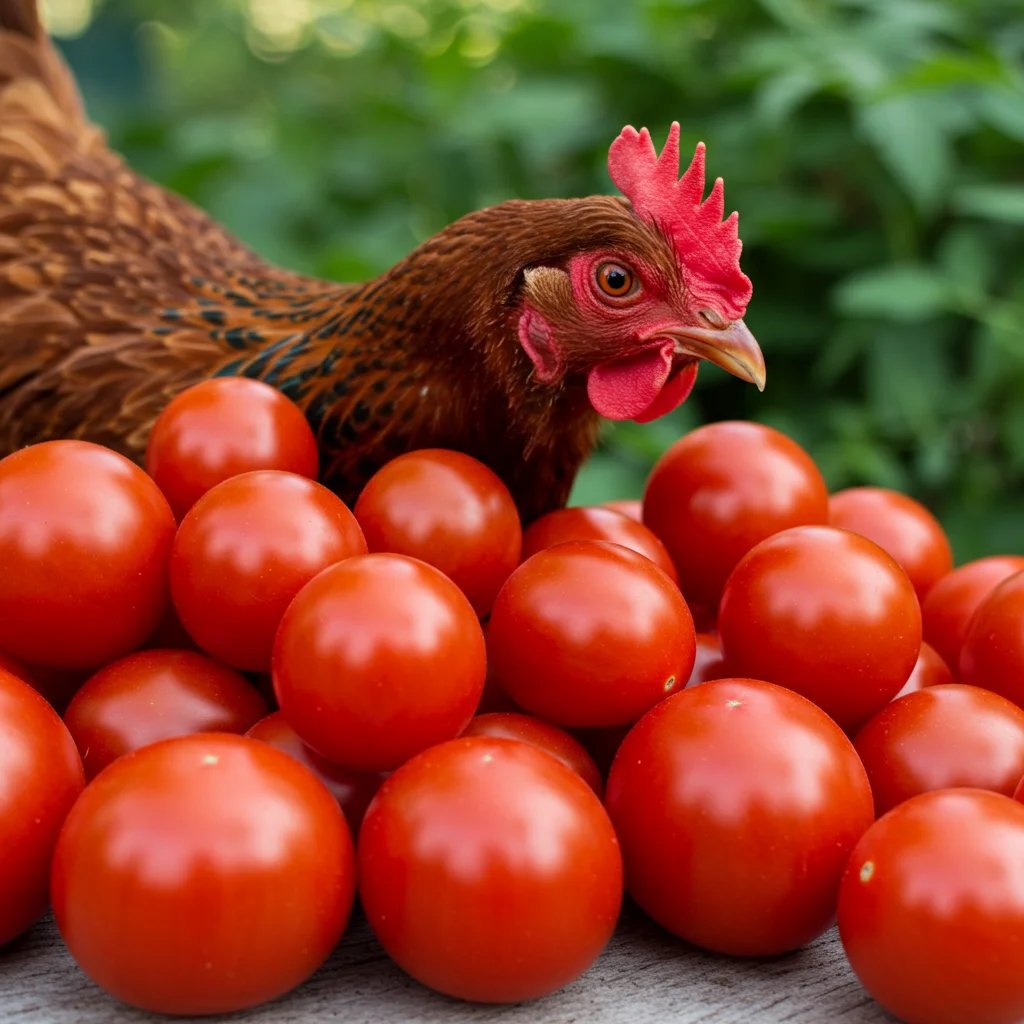Yes, chickens can have tomato plants, but with some important caveats. While the ripe fruit is generally safe and even beneficial for them, the leaves and stems of the tomato plant contain solanine, a toxic compound that can be harmful to chickens. This guide explores the benefits and risks of feeding tomato plants to chickens, safe feeding practices, and answers frequently asked questions
.
This post delves into the complex relationship between chickens and tomato plants. It examines whether chickens can safely consume different parts of the tomato plant, including the fruit, leaves, and stems. We’ll explore the nutritional benefits of tomatoes for chickens, the potential dangers of solanine poisoning, and provide practical tips for safely incorporating tomatoes into your flock’s diet.
JUMP TO TOPIC
The Nutritional Benefits of Tomatoes for Chickens
Ripe tomatoes offer several nutritional advantages for your feathered friends. They are a good source of:
- Vitamins: Tomatoes contain Vitamins A, C, and K, which contribute to healthy immune function, bone health, and blood clotting.
- Antioxidants: Lycopene, a powerful antioxidant found in tomatoes, can help protect cells from damage and boost overall health.
- Minerals: Tomatoes provide essential minerals like potassium and manganese, which are important for various bodily functions.
- Hydration: The high water content in tomatoes can help keep chickens hydrated, especially during hot weather.
The Dangers of Solanine in Tomato Plants
While ripe tomatoes are generally safe, the leaves, stems, and unripe (green) tomatoes contain solanine, a glycoalkaloid that can be toxic to chickens. Solanine acts as a natural defense mechanism for the plant against pests.
Symptoms of solanine poisoning in chickens can include:
- Lethargy and weakness: Affected chickens may appear drowsy and reluctant to move.
- Loss of appetite: A decrease in food intake is a common sign of illness.
- Diarrhea: Digestive upset is a frequent symptom of solanine poisoning.
- Tremors and seizures: In severe cases, neurological symptoms like tremors and seizures can occur.
- Paralysis: Extreme solanine poisoning can lead to paralysis and even death.
Safe Practices for Feeding Tomatoes to Chickens
If you want to share your tomato harvest with your flock, follow these guidelines to minimize the risk of solanine poisoning:
- Offer only ripe, red tomatoes: Avoid giving chickens green or unripe tomatoes, as these contain higher concentrations of solanine.
- Remove leaves and stems: Never allow chickens access to the leaves and stems of tomato plants. These parts contain the highest levels of solanine.
- Introduce tomatoes gradually: Start by offering small amounts of ripe tomatoes to monitor your chickens for any adverse reactions.
- Provide a balanced diet: Tomatoes should be a supplemental treat, not a staple food. Ensure your chickens have access to a complete and balanced chicken feed.
- Supervise your chickens: When introducing new foods, always supervise your flock to observe their behavior and identify any potential problems.
- Consult a veterinarian: If you suspect your chicken has ingested toxic parts of the tomato plant and is showing symptoms of illness, contact a veterinarian immediately.
Alternatives to Tomatoes
If you’re concerned about the risks of solanine, consider these safe and nutritious alternatives for your chickens:
- Other fruits: Chickens enjoy a variety of fruits, such as watermelon, berries, and apples (remove seeds).
- Vegetables: Leafy greens, carrots, and cucumbers are healthy and enjoyable additions to a chicken’s diet.
- Commercial treats: Offer commercially available chicken treats in moderation as part of a balanced diet.
FAQs about Chickens and Tomato Plants
Q: Can chickens eat cooked tomatoes?
A: Yes, cooked tomatoes are safe for chickens, provided they are cooked without any harmful seasonings or additives.
Q: How much tomato can I give my chicken?
A: Tomatoes should be given as an occasional treat, not a main food source. A small handful of ripe tomato pieces per chicken a few times a week is sufficient.
Q: What if my chicken accidentally eats a tomato leaf?
A: If your chicken consumes a small amount of tomato leaf, it’s unlikely to cause serious harm. Monitor them for any signs of illness. If they exhibit any symptoms of solanine poisoning, contact a veterinarian.
Q: Are cherry tomatoes safe for chickens?
A: Yes, ripe cherry tomatoes are safe for chickens, just like regular tomatoes. Follow the same guidelines for safe feeding.
Q: Can chickens eat tomato seeds?
A: Tomato seeds are generally safe for chickens in small quantities.
Conclusion
Offering ripe tomatoes to your chickens can provide them with valuable nutrients and a tasty treat. However, it’s crucial to understand the potential dangers of solanine present in the leaves, stems, and unripe fruit. By following safe feeding practices and understanding the potential risks, you can ensure your flock enjoys the benefits of tomatoes without compromising their health. Always prioritize a balanced diet and consult a veterinarian if you have any concerns.

